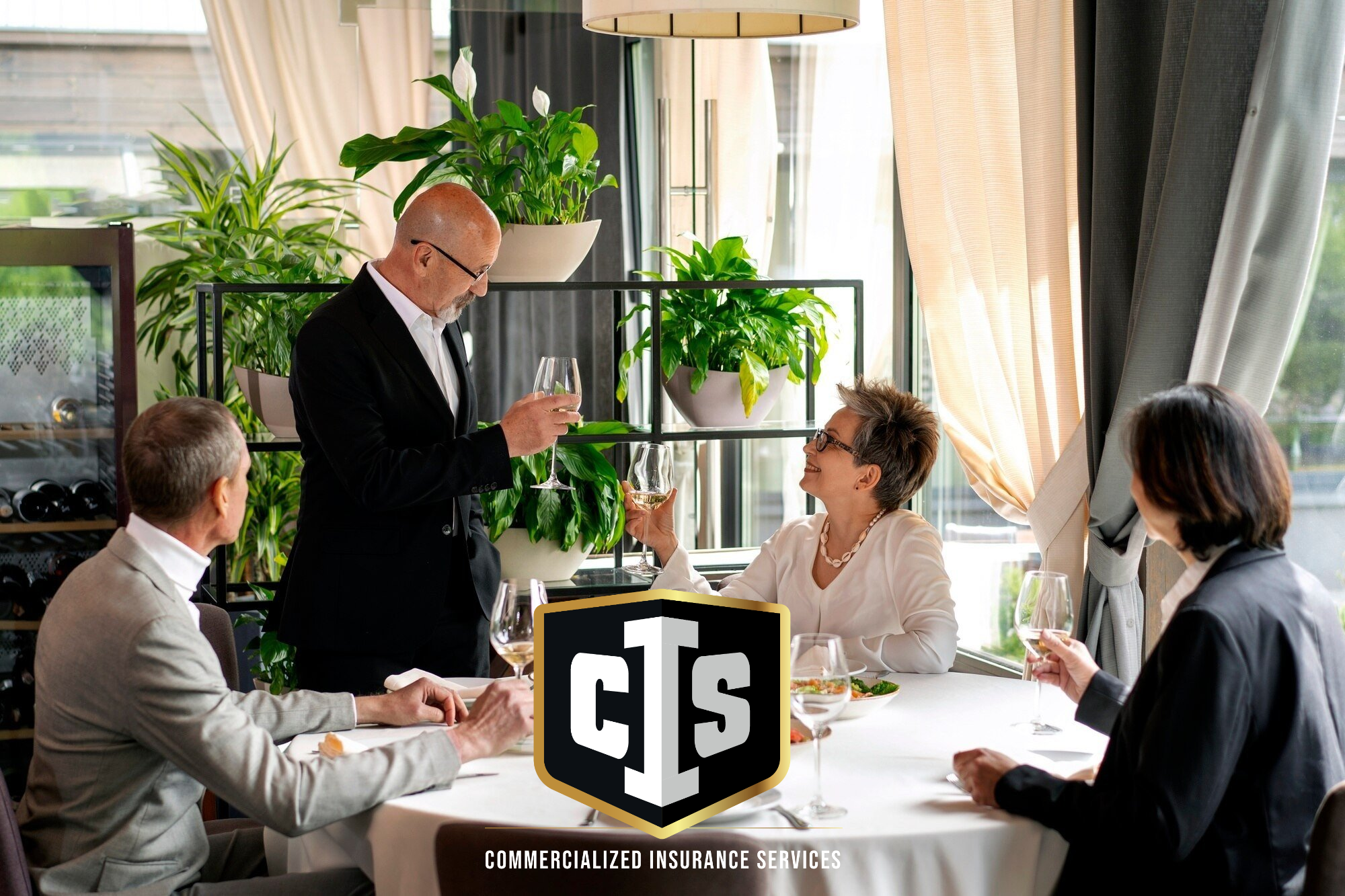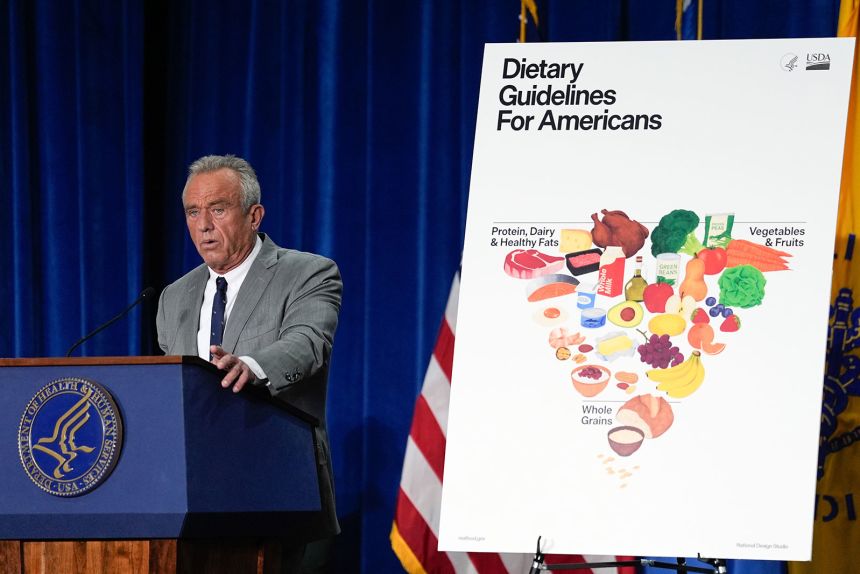Evolving Risk in the Florida Hospitality Industry
Fine dining establishments in Florida operate in a complex risk environment that demands consistent attention to insurance coverage. From upscale restaurants to boutique cafés and vibrant bars, hospitality venues are exposed to evolving threats from liability claims to business interruptions. An annual insurance review is essential for aligning coverage with these dynamic risks.
The Florida hospitality industry is especially vulnerable to rapid shifts in customer preferences, economic conditions, and regulatory changes. Factors such as extreme weather events, fluctuating tourism volumes, and increasing litigation trends add to the urgency of maintaining robust protection. For fine dining establishments in Florida, even a brief lapse in adequate coverage can translate into costly legal disputes or recovery challenges after unforeseen events.
Restaurant owners and managers often underestimate how much can change in a single year. New hires, expanded menus, renovated interiors, added delivery services, and increased alcohol sales are all operational shifts that directly affect insurance needs. These seemingly routine updates can dramatically alter a business’s risk profile. Without periodic reviews, policies can become outdated, leaving establishments exposed to significant financial losses.
Additionally, shifts in staffing levels or employee classifications may require adjustments to workers’ compensation or general liability policies. An annual insurance review allows business owners to detect and address these changes early, preventing gaps in protection. As the hospitality landscape continues to evolve, proactive policy management ensures fine dining establishments in Florida remain resilient and financially safeguarded against emerging threats.
Regulatory Pressures and Compliance in Florida
In Florida, restaurant and bar owners face a stringent regulatory environment. Employers with four or more employees must maintain workers’ compensation insurance, and those serving alcohol must understand the complexities of alcohol-related liabilities. Navigating these legal requirements is not only time-consuming but demands continuous awareness as state and local policies evolve.
From mandatory signage and food safety standards to liquor licensing protocols, the compliance landscape for hospitality businesses is both layered and unforgiving. Failing to adhere to these standards can trigger investigations, temporary closures, or reputational damage all of which carry financial consequences far beyond initial penalties.
Failure to maintain adequate insurance isn’t just a financial risk, it’s a compliance issue that can lead to fines or suspension of business operations. Insurance policies that do not reflect the current scale and nature of operations may also fall short in the eyes of regulators during audits or inspections. This is why regularly reviewing and updating policies is not optional. It’s a critical business practice.
Staying ahead of regulatory pressures means partnering with insurance professionals who understand the unique demands of the Florida market. Whether it’s verifying liquor liability limits, confirming workers’ compensation coverage, or ensuring that endorsements meet local ordinances, a proactive approach helps restaurant and bar owners remain compliant and competitive.

Key Insurance Categories Every Fine Dining Venue Must Review Annually
Florida’s fine dining industry thrives on sophistication, service, and seamless operations all of which depend on having the right insurance protections in place. As businesses grow, diversify services, and attract a more discerning clientele, reviewing and updating insurance annually is crucial to maintaining both compliance and financial resilience.
General Liability Insurance
General liability insurance protects restaurants from third-party claims involving bodily injury, property damage, or advertising injury. In fine dining, where presentation, ambiance, and service play critical roles, the smallest incidents like a guest slipping on a freshly mopped floor can escalate into costly lawsuits. Even a minor injury could result in legal action, negative press, or settlement fees that far exceed what a standard policy might cover if it’s not up to date.
An annual review ensures that the limits of liability are still appropriate for the establishment’s current operations, clientele volume, and service model. For example, a restaurant expanding its footprint or hosting larger events may need higher coverage limits. Moreover, policyholders should assess whether their insurance extends to off-site catering events, private functions, or valet services, all of which can significantly increase risk exposure.
Workers’ Compensation Insurance
With back-of-house staff, waitstaff, bartenders, and delivery personnel all at varying levels of risk, having accurate and adequate workers’ compensation coverage is vital. A yearly evaluation ensures that payroll numbers, employee classifications, and job responsibilities are correctly reflected in the policy. This is especially important in Florida, where compliance with state regulations is closely monitored and non-compliance can lead to penalties or stop-work orders.
Inaccuracies can result in either insufficient coverage or higher premiums. For example, failing to update the number of employees after a hiring surge can lead to coverage gaps that put the business at legal and financial risk. Additionally, the integration of new roles such as in-house delivery drivers or culinary interns should prompt updates to employee classification codes to ensure appropriate risk modeling and premium calculations.
Commercial Property Protection
Restaurants rely on a mix of expensive kitchen equipment, décor, and leasehold improvements. Fire, theft, or water damage could cause irreparable harm without the right commercial property insurance in place. Beyond structural concerns, the loss of inventory, such as high-end wines, imported ingredients, or signature glassware, can be a major setback both financially and operationally.
Annual reviews help owners account for new assets such as a newly installed wine cellar or updated HVAC systems and adjust limits accordingly. Renovations, tech upgrades like POS systems, and investments in patio expansions or seasonal pop-ups should also be factored into updated valuations. This ensures swift recovery after a covered loss and minimizes business disruption.
Business Interruption Insurance
Fine dining establishments often operate on tight margins and rely on uninterrupted service to stay profitable. Business interruption insurance covers lost income when operations are halted due to a covered peril like fire or flood. But not all policies are created equal; some may exclude certain perils, impose waiting periods, or cap recovery amounts in ways that don’t reflect a business’s true financial risk.
Changes in revenue, operational models (such as adding takeout or events), or new supply chain dependencies should all trigger a reassessment during the annual review to avoid underinsurance. For example, a restaurant that began hosting high-end wedding receptions or wine-pairing events may face longer downtimes in case of loss, requiring expanded coverage to buffer income drops and support staff retention.
Liquor Liability Insurance for Restaurants Florida
Restaurants that serve alcohol in Florida are legally and financially responsible for patrons who cause harm after being served. This is especially relevant for fine dining venues with extensive wine lists or signature cocktails. Liquor-related incidents including accidents, altercations, or alcohol poisoning can result in lawsuits that threaten the financial health and public image of the restaurant.
Regularly reviewing the liquor liability insurance for restaurants in Florida ensures that establishments remain compliant with state laws and financially protected against lawsuits involving intoxicated patrons. Additionally, coverage limits may need to be increased if the venue has expanded bar operations, introduced new drink menus, or extended serving hours. Venues that offer wine tastings, happy hour promotions, or host large parties should confirm that all alcohol-related exposures are covered.
The Risk of Underinsurance
Failing to review and update insurance policies annually often leads to underinsurance, a dangerous situation where coverage is inadequate in the event of a claim. This can leave business owners paying out of pocket for repairs, medical bills, or legal settlements. For fine dining establishments in Florida, where operational costs and customer expectations are high, such gaps in protection can threaten long-term sustainability.
Underinsurance can also hinder the recovery process after disasters, prolonging closures and putting a business’s reputation at risk. For high-profile restaurants, this can have a lasting impact on customer loyalty. Guests may lose confidence if a venue remains shuttered for extended periods due to unresolved insurance issues. In the age of online reviews and viral feedback, delays in reopening or mishandled claims can generate negative publicity that outweighs the original incident.
Moreover, underinsurance may disqualify a restaurant from receiving full compensation even when a claim is approved. Insurers often apply co-insurance penalties, meaning that policyholders who insure below a certain threshold (typically 80% of the property’s value) receive only partial payouts. This creates an additional layer of financial strain during critical moments of recovery.
Insurance Reviews as a Strategic Business Tool
Conducting annual insurance reviews is not just a risk management tactic; it’s a smart business strategy. A well-structured review process turns insurance from a reactive necessity into a proactive asset that supports growth, efficiency, and legal compliance. It allows owners to:
- Identify unnecessary coverages and reduce costs: Eliminating outdated endorsements or duplicated protections helps allocate funds more effectively.
- Ensure compliance with updated local or state laws: Regulatory changes may introduce new insurance requirements such as cyber liability coverage for digital payment systems that weren’t previously applicable.
- Reflect changes in operations and staffing: New business models, added services, or modified staffing levels require corresponding updates in policy terms and limits.
- Plan for growth with scalable coverage: If a fine dining venue intends to open a second location, expand into catering, or host ticketed events, the insurance strategy must evolve accordingly.
These reviews should be scheduled just like tax filing or health inspections. They’re a vital checkpoint that supports operational continuity and financial health. In many cases, they also uncover opportunities for better pricing, improved policy terms, or bundled coverage options that deliver more value at a lower cost.
For Florida’s restaurant and hospitality leaders, treating insurance reviews as part of an annual strategic planning cycle reinforces resilience and positions the business for sustainable success.
Pain Points Solved by Proactive Insurance Management
Eliminating Insurance Confusion
Many restaurant operators find policy documents confusing and time-consuming to interpret. The legal language, detailed endorsements, and varying exclusions can be overwhelming especially when layered on top of the already demanding responsibilities of running a fine dining establishment. Annual reviews, guided by knowledgeable agents, break down coverage needs in plain language, removing uncertainty and boosting confidence.
Working with a trusted insurance advisor helps clarify which coverages are legally required versus which are strategic safeguards. Business owners gain a clearer understanding of liability limits, deductibles, and exclusions empowering them to make informed decisions. These discussions can also uncover hidden vulnerabilities or outdated assumptions about current protection levels.
Ensuring Regulatory Compliance
A proactive review process includes verifying that policies align with Florida’s legal requirements for food service establishments. From mandatory workers’ compensation thresholds to liquor liability limits, compliance isn’t just about avoiding penalties, it’s about protecting the business’s ability to operate without disruption.
Annual reviews provide an opportunity to confirm that insurance documents are ready for inspections or audits. Whether it’s renewing a health permit, applying for a special events license, or passing a surprise compliance check, having updated and accurate insurance information on hand ensures smooth operation. This proactive approach also demonstrates professionalism and commitment to safe business practices.
Mitigating Risk Exposure
Identifying new risk factors such as live entertainment or outdoor seating and updating policies accordingly can reduce the likelihood of denied claims. These additions, while enhancing the customer experience, introduce new exposures that may fall outside the scope of existing coverage unless properly disclosed.
For instance, a restaurant adding a weekend jazz trio or installing a temporary patio may inadvertently increase its liability. Without adjusting the general liability or commercial property policy, the business could face disputes during claims. Annual reviews ensure the business is covered even as it evolves, offering peace of mind and operational continuity.
Addressing Staff-Related Claims
The hospitality industry sees frequent workplace injuries due to slips, burns, and repetitive motions. Fine dining kitchens operate at high intensity, with heat, sharp tools, and fast-paced coordination all contributing to injury risk. Keeping workers’ compensation policies up to date protects both staff and owners from lengthy, expensive claims processes.
As job duties shift for example, if waitstaff begin handling table-side preparation or bartenders participate in special events employee classifications should be reassessed. Inaccurate classifications or outdated payroll estimates can lead to disputes with insurers or shortfalls in coverage during critical incidents. Timely reviews help ensure that every employee is protected and that employers remain compliant and prepared.

Protecting Property Investments
Renovations, kitchen upgrades, and interior redecorations increase the value of restaurant property. Whether it’s installing high-end appliances, adding a chef’s tasting room, or redesigning the dining area, these improvements enhance both guest experience and business equity. In the competitive fine dining sector, aesthetics and efficiency are major differentiators and every upgrade represents a significant financial investment that must be safeguarded. Annual reviews ensure these investments are fully protected against loss or damage.
Standard commercial property insurance may not automatically adjust to reflect recent improvements. While base coverage might account for the original structure and equipment, it often excludes or underestimates the added value of new design elements, premium finishes, or specialized kitchen installations. Without a policy update, owners risk receiving inadequate compensation if a covered peril like a fire or break-in affects the newly upgraded areas. This gap can mean paying thousands out of pocket to restore the restaurant to its previous operational level.
For example, if a restaurant installs a custom wine cellar or remodels to include a chef’s counter experience, those features may not be fully insured under the previous valuation. Even seemingly small improvements like upgrading lighting systems, replacing flooring with imported tile, or enhancing the outdoor patio can cumulatively shift the replacement cost significantly.
Keeping insurance aligned with actual property value supports faster recovery, protects capital investment, and secures the long-term viability of the business. Through a detailed annual review, owners can ensure their commercial property policy includes recent invoices, adjusted valuations, and updated inventory records for furnishings, equipment, and décor. This level of attention not only helps during claims but can also streamline financing, licensing renewals, and future expansion plans.
Building Long-Term Resilience in Florida’s Restaurant Scene
The Florida hospitality industry is growing but also becoming more competitive and regulated. From evolving consumer expectations to new legislation and economic volatility, today’s fine dining establishments must be as resilient as they are innovative. Regular insurance reviews provide a critical layer of protection that helps restaurants stand out, recover faster from setbacks, and build lasting reputations.
Resilience in this context means more than just having a policy in place. It’s about proactively managing risk in a way that supports business continuity, legal compliance, and customer trust. A restaurant that can quickly rebound after a flood, a kitchen fire, or a liability claim demonstrates professionalism and foresight traits that attract loyal patrons, satisfied employees, and long-term investors.
Annual reviews are an opportunity to assess all aspects of a business’s risk profile and adjust accordingly, turning what might seem like a bureaucratic task into a competitive advantage. From identifying underinsurance to uncovering outdated classifications, the insights gained during a comprehensive policy review help leadership make smarter financial and operational decisions.
To explore comprehensive protection for hospitality venues, restaurant owners are encouraged to review their liquor liability insurance for restaurants in Florida and broader commercial policies to ensure alignment with current needs. As businesses expand their service models introducing outdoor dining, private events, or curated wine experiences it’s essential that every layer of coverage evolves accordingly.
In the fast-paced, customer-driven world of Florida fine dining, the ability to adapt and protect your assets is as important as the quality of your cuisine. Investing in regular insurance evaluations isn’t just about avoiding losses, it’s about securing a thriving future.
Take the Next Step Toward Comprehensive Protection
Take the Next Step Toward Comprehensive Protection by proactively safeguarding your restaurant’s future before unexpected events occur. Restaurant professionals interested in securing their future should not wait for a claim to discover a coverage apprehension is far more powerful than reaction. Whether you run a single-location bistro or manage a multi-unit franchise, ensuring that your coverage aligns with your actual risks is critical to long-term sustainability.
Instead, they can:
- Contact USA CIS for a personalized consultation with insurance specialists who understand the unique exposures and operational demands of the food service industry. From front-of-house liability to back-of-kitchen risks, our advisors help align your policy with your business.
- Request a free risk assessment tailored to their restaurant to identify blind spots that could leave you vulnerable. Our process examines every facet of your operations, including employee safety, property concerns, liquor liability, and foodborne illness exposure.
- Explore customized restaurant insurance plans that match their operational and financial realities, ensuring your coverage fits the actual rhythm of your business. Whether it’s seasonal fluctuation, third-party delivery services, or specialized cuisine equipment, we build policies that reflect what makes your restaurant unique.
Don’t leave your livelihood to chance. Take action now to avoid costly gaps and gain peace of mind knowing your business is protected from all angles.
Trusted Industry Resources
To further empower restaurant professionals in making informed insurance decisions, we recommend exploring these Trusted Industry Resources:
- U.S. Small Business Administration – Business Insurance Guide
Comprehensive guidance for small business owners navigating their insurance needs. Visit SBA Business Insurance Guide - National Restaurant Association – Risk Management
Insightful strategies and regulatory updates tailored to restaurant operators. Visit NRA Risk Management - Insurance Information Institute – Commercial Insurance Basics
Authoritative information on commercial coverage types and how they apply across industries. Visit III Commercial Insurance Basics





